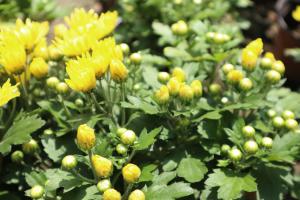How Far Apart Should I Plant White Pine Trees?
Planting white pine trees can be an excellent addition to your landscape design, providing shade, beauty, and a habitat for wildlife. However, it's essential to understand how far apart you should plant white pine trees for optimal growth and health. The spacing between your white pine trees can affect everything from their overall size to their disease resistance, so it's crucial to choose the right distance for your planting site.
Spacing White Pine Trees Correctly
The general rule of thumb for planting white pine trees is a spacing distance of 10-12 feet. However, there are some circumstances where you may want to adjust this distance. If you want a quicker-growing forest and don't mind smaller trees, you can space your trees closer together. If you want to grow larger trees or plan to use the wood commercially, you may want to increase the spacing to 15-20 feet between trees.
Tree Size and Spacing
The spacing distance you choose for your white pine trees will depend on the size you want them to reach. If you are growing white pines for ornamental purposes, you may want to plant them closer together, to create a denser and fuller look. If you want to grow white pines for timber, sap production, or wildlife habitat, you may want to space your trees further apart to allow their branches to grow wide and tall.
White Pine Diseases and Spacing
White pine trees are susceptible to a variety of diseases and pests, such as white pine blister rust, needle cast, and weevils. Choosing the right spacing distance for your trees can help prevent the spread of these diseases. By planting trees closer together, they can transfer diseases and pests more easily, so you must space them far enough apart to minimize their contact.
Other Considerations
When deciding how far apart to plant white pine trees, there are other factors to consider, such as your planting site's soil type, moisture level, and nutrient availability. White pines prefer well-drained soil, so if your site is prone to waterlogging, you may want to provide more space between trees to prevent water buildup around the roots. Similarly, if your site is nutrient-poor, you may want to space your trees closer together to maximize nutrient uptake.
Conclusion
When planting white pine trees, it's essential to consider spacing to ensure their health and growth. While the general rule of thumb is between 10-12 feet, factors such as tree size, purpose, disease resistance, and planting site conditions can all affect the ideal spacing distance. By taking these factors into account, you can create a beautiful and healthy white pine forest that meets your needs and enhances your landscape's beauty.

 how many times do yo...
how many times do yo... how many planted tre...
how many planted tre... how many pine trees ...
how many pine trees ... how many pecan trees...
how many pecan trees... how many plants comp...
how many plants comp... how many plants can ...
how many plants can ... how many plants and ...
how many plants and ... how many pepper plan...
how many pepper plan...






























